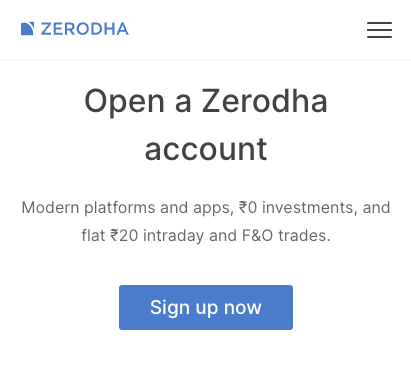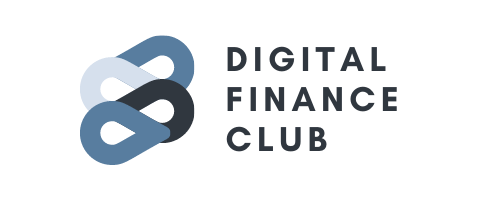Zerodha is a SEBI-registered discount broker founded by Nikhil Kamath in 2010, with its headquarters in Bangalore, Karnataka. Zerodha brought about a massive transformation in online trading and investing by addressing many essential requirements of traders and investors that were ignored for a long time.

The platform allows its customers to trade and invest in multiple asset classes comprising Futures and Options, Stocks and IPOs, Direct mutual funds, Commodity derivatives, Currency derivatives, Bonds, and Govt. Securities. Besides, the platform offers free and open market education through Varsity and TradingQ&A. Most importantly, Zerodha offers a clean, intuitive, and advanced trading and investment app.
Upstox is another popular SEBI registered trading and investment platform established in 2009. Initially, it used to be known as RKSV. The platform introduced completely paperless onboarding in 2016. Upstox has investors like Ratan Tata and Tiger Global, making it a reliable trading and investing platform.

The platform allows customers to trade and invest in Stocks, IPOs, Mutual Funds, and Futures & Options. Upstox provides customers with trading and investment apps with excellent user interfaces and charting tools. Further, the platform has recently introduced its investment and trading education platform called UpLearn.
Account Opening Process
The account opening process is equally simple in Zerodha and Upstox. Before you go ahead with the account opening process, you must keep a few things handy. Here is a list of things that you must have with you ahead of starting the process:
- Aadhaar-linked mobile number
- Your Email Account
- Soft Copy of your Pan Card
- Aadhaar Card
- Six months bank statement for enabling F&O, and Commodity segments
- Webcam-enabled PC or Smartphone
Trading Platforms
It's time to look at the trading platforms of the two leading discount brokers. Zerodha offers a smooth and reliable trading experience through its trading app, Kite. Users can access the app for free on Android and iOS platforms, and besides, Kite is available as a web app.
Regarding my experience with Kite, I found Kite's web app impressively smooth, but the mobile app sometimes gets a bit slow. In the case of Upstox, it's just the other way around; Upstox's mobile app works seamlessly, while the chart on the web app gets sluggish.
Both Zerodha and Upstox offer exceptionally good security backed by advanced 2-factor authentication for their trading apps. Both offer leverage trading on Equity Intraday, meaning you can buy more stock quantities than your actual fund in your Zerodha account permits. You can get up to 5 times leverage.
For example, if you have ₹1 lakh, you can buy quantities of stock for ₹5 lakhs. Both platforms offer users the option to choose between two leading charting platforms: Tradingview and ChartIQ. Besides, both come with all useful indicators and multiple timeframes.
Both Zerodha and Upstox come with the GTT order feature, which helps traders place SL and Target simultaneously when placing an order. While you don't get the multi-layout on free Tradingview accounts, you can have this feature with Zerodha and Upstox.
However, there are a few places where Zerodha has a leading edge over Upstox. One such feature is the PNL, and Zerodha has the best PNL among all the discount broking platforms. Zerodha's PNL graphically represents your winning and losing trades on a daily basis. On the contrary, Upstox provides simple profit and loss data, which users can download to their devices to view.
Another excellent feature of Zerodha, which has gained much popularity recently, is its Killswitch. If you don't know what a killswitch in trading is, it's a feature that allows users to disable trading for some hours to break out of overtrading. You do it in Zerodha by going to the Zerodha console and disabling the segments for the next 12 hours. Once you disable a segment, you can only enable it if 12 hours is over, no matter how badly you need it. Upstox offers ready-made Options strategies (straddle and strangle strategies). However, Zerodha doesn't have such a feature yet.
Fees And Charges
It's time to walk you through the charges of the two trading platforms. Zerodha charges ₹200 for account opening and an Annual Maintenance Charge of ₹300, while Upstox charges an account opening charge of ₹249. However, the platform doesn't charge any Annual Maintenance Charge. As far as the brokerage charges go, both Zerodha and Upstox have the same brokerage structure. Here are the charges:
- Zero Brokerage for Equity Delivery
- Rs 20 or 0.03% (whichever is lower) per executed order for Equity Intraday, F&O, Commodity, and Currency F&O
Investment Options
Both Zerodha and Upstox are excellent platforms for investments, and both offer multiple financial instruments to invest in, which comprise Stocks, IPOs, Mutual Funds, Bonds, and Securities.
Zerodha has a dedicated platform called Coin for Long term investment in Direct mutual funds, Government bonds, Corporate bonds, and Sovereign gold bonds.
Likewise, Upstox has a dedicated application only for investments in Stocks, IPOs, and Mutual Funds. Most importantly, both platforms are extremely reliable and secure, making them ideal for long-term investments.
Research And Analysis Tools
When it comes to research and analysis tools, both Zerodha and Upstox offer excellent charting tools for technical analysis. Zerodha has Pulse for tracking business and market news.
Upstox, on the other hand, proactively keeps users updated with much important news every day through notifications. Interestingly, both platforms offer integration with Sensibull for backtesting Options strategies.
Further, Zerodha and Upstox fundamentals and Option chain data for all equity stocks and indices. Zerodha also provides technicals by Streak for every stock or index.
Support
Finally, it's time to find which of these trading platforms has better support. Zerodha offers support through phone and tickets, while Upstox assists users through live chat, phone, and tickets.
I have contacted both Zerodha and Upstox support over the phone, and based on my experience, I can say that Upstox phone support is better. I have to say this since it takes a long IVR process to reach the Zerodha executive over the phone, and besides, you have to provide them with the Support code from your Zerodha account in order to be able to speak to an executive.
However, you don't need all these to chat with a Upstox executive, and the process is always straightforward. Besides, connecting to any executive over the live chat on Upstox with your issue is easy once you log in to your Upstox account. As far as my experience with tickets goes, both platforms are equally good.
Pros And Cons
Zerodha
Pros:
- Exceptional reliability and security
- Leverage trading on Equity
- Powerful trading platform
- Tradingview & Chart IQ charting tools
- Varsity for trading and investment education
- Zero brokerage on delivery
- Minimal brokerage on Equity and F&O intraday
- Sensibull integration for backtesting Options strategies
- Graphical P&L statement & KillSwitch
Cons:
- Account opening is not free
- Charges an AMC of ₹300
- No Live Chat Support
Upstox
Pros:
- Backed by investors like Ratan Tata
- Zero Annual Maintenance Charges
- Leverage trading available on Equity
- Ready-Made Options Strategies
- Backtest Options Strategies with Sensibull integration
- Tradingview and ChartIQ charts
- GTT orders for placing SL and target together
- UpLearn for educating beginners on trading and investing
- Quick support through live chat, tickets, and phone
- No brokerage on Equity delivery
Cons:
- Account opening is not free
- The P&L report is not fascinating and could be much better
- The web app is a bit sluggish
Conclusion
I have walked you through the crucial aspects of the two trading platforms. As you have seen in this post, both platforms are similar and, most importantly, exceptionally reliable and secure. I have explained in detail how you can open an account with these platforms, and if you follow the steps well, you should be fine with account opening. Both Zerodha and Upstox offer a lot of room for learning to trade and invest through their free education platforms. Besides, both offer excellent research and analysis tools.
Zerodha has a leading edge over Upstox, backed by its beautiful graphical P&L statement and, of course, its Killswitch. However, Upstox has better and faster support than Zerodha. If you are looking forward to stepping into the world of trading and investment in the Indian market, I would definitely recommend choosing Upstox over Zerodha considering the series of glitches in recent times.

